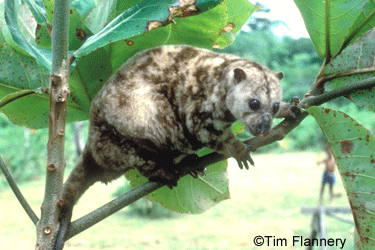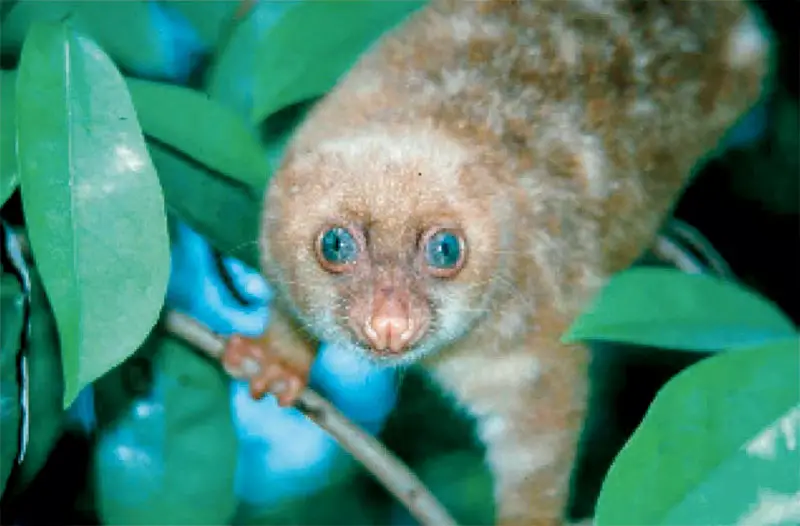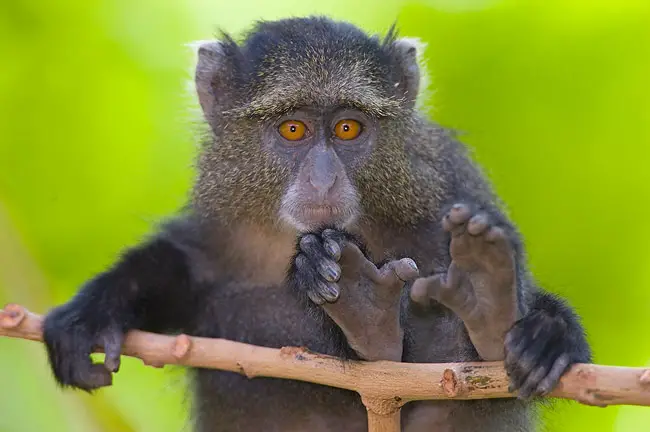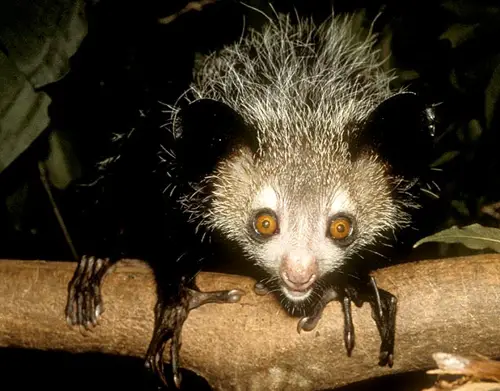Cuscus
Cuscus is a marsupial that spends all its life in the trees, its natural habitat being the wet forests of New Guinea and the Australian province of Queensland. Scientists think that Cuscus established a population in the north of Queensland many thousands of years ago, when the sea level fell and New Guinea and Australia became connected.
These mammals are medium-sized, reaching 34-65 cm in length and weighing 1,5-6 kilograms. The fur is thick and fur-like, it protects the Cuscus from harsh weather conditions. The body is designed for climbing – its legs are long, forefeet are equipped with sharp, curved claws that can carve into branches. The tail which is almost as long as the rest of the body, is very strong and the Cuscus can twist it around branches and even hang in it.
Cuscus is a nocturnal animal, it spends daytime sleeping high in the trees, where the thick leaves of tropical trees grant him a greaet cover. Cuscus wakes up in the evening and goes searching for food, slowly moving along the branches. Colonists first thought this creature was an ape, and this news became a sensation for scientists. Later, however, it turned out that Cuscus is not even closely related to apes. These tiny mammals lead a solitary lifestyle and only meet other individuals during the mating period and they are generally aggressive towards other members of their kin.
The diet of Cuscus mostly consists of fruits, leaves and sometimes tree bark, too. The teeth also allow Cuscus to hunt small rodents and birds, but due to its passive nature, the Cuscus will only hunt creatures that are sleeping or simply distracted. The Cuscus doesn’t have many natural predators – its coat provides a great camouflage in the trees, but if compromised, the Cuscus can’t really perform any kind of defense.
Not much is known about the mating habits of these animals. It is speculated that they can mate at any time of the year and the pair go back to leading their solitary lives after copulation. Same as for all marsupials, Cuscus babies are born poorly developed and spend much time in their mothers’ pouch. Younglings leave the pouch only after 6-7 months and it takes a few more months for the young Cuscus to start its own independent life. They have a relatively long life expectancy, reaching the age of 11 in the wild and even 17 years in captivity.
The Cuscus is a moderately endangered animal – many of them are killed by the natives, who consider the Cuscus’ meat a delicacy and its fur is used as a fabric. The population of Cuscus seems to be on a decline and there is a need for natural reservoirs to be created in order to preserve these tree marsupials




